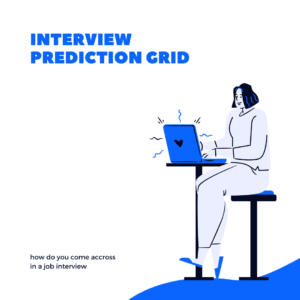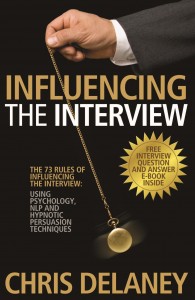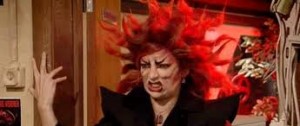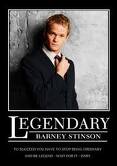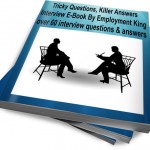Once you receive your Interview Invitation, you still have work to do, the first being to practice answering tricky interview questions. T
o do this you need to know what type of interview questions you will be asked, you can read 101 Interview Questions and I would add what is even more important then knowing the interview questions is knowing how to structure your interview answer.
To gain an insight into the specific question you will be asked, re-read the job specification that came with your job application pack.
All the Essential Skills, Knowledge and Experiences on the job specification will be turn into interview questions this is because the employer feels that their new employee needs the required knowledge or experiences to fit in at the level the company is operating at.
The key to passing job interviews is Communication, the employer needs to understand what you are trying to communicate to them; communication is not about what you are saying, it’s about what the other person interprets what you are saying which means you need to structure you interview answer in such a way that employer has no doubt you can do the specific part of the job that the interview question related to.
Answering Interview Questions
You may be asked direct interview questions; what, where, why, who or competency-based questions; give me an example, describe a time when you, summaries your previous role and duties
It’s not about the type of question you are asked it’s about how you structure your answer which means you need to know how to answer interview questions.
I would add you need your answer to come across loud and clear by delivering 3 key pieces of information per answer, any more then this can confuse the interviewers mind, as the brain can find it hard to remember a large amount of information in one go.
Start by answering the question in the first sentence
Q: Are you a good team player?
A: Yes I am a good team player, in my last position I worked in team environment throughout the project…
Q: What is your knowledge of diversity and equal opportunities regulations?
A: I possess a deep understanding of diversity and equal opportunity regulations; I find it really important to keep unto date with changes to regulations…
Q: Where do you see yourself in 5 years’ time?
A: I am really keen to turn this position into a career, in 5 years time I will have a full understanding of the job sector and will be applying for a promotion within this organisation.
Q: Describe a situation where you dealt with an angry customer.
A: In my last position I would work on the complaints department every Monday and would often come across “angry” customers; I was always able to quickly calm customers down and resolve their issues by…
Next, add a little more detail – this should intrigue the employer and hit several of the job specifications essential criteria
- Give an overview of the situation – In many cases this is done when you answer the question in your first sentence.
- Explain any “problems” or “barriers” you had to face and overcome “the company had never had a contract like this before” “sales had started to drop, so the manger asked me to join the team..”
- Explain what YOU did “I was responsible for..” “I took initiative..” “it was my idea to…”
- Explain the positive outcome from your actions; where possible quote figures and percentages or give third-person feedback “this led to an increase in sales by 35%” “the team manager fed back that this resulted in an increase in company shares”
Finally, summaries by referring back to the question (this can also come across as you thinking of your answer on the spot, not using a prepared answer)
- “Does that example highlight the team player skills you are looking for?”
- “I have a wide range of knowledge of diversity and equal opportunity regulations, would you like me to quote any more?”
- “Overall I am happy to stay in this company and work my way up the career ladder”
- “To summaries, I have come across a wide range of angry customers, but once you know how to calm and resolve their issues you increase your customer retention”
As you can see from the 4 examples above, some of the summaries end with a question; this is a great additional trick to check if you have hit the interviewer’s required points to their question.
If you have you often hear “Yes that was a nice answer” or “I think we have covered everything” if you haven’t you will often be told “I was looking for an example when you X” you can then give a new example covering X or the interviewer may ask you a second but more specific question.


